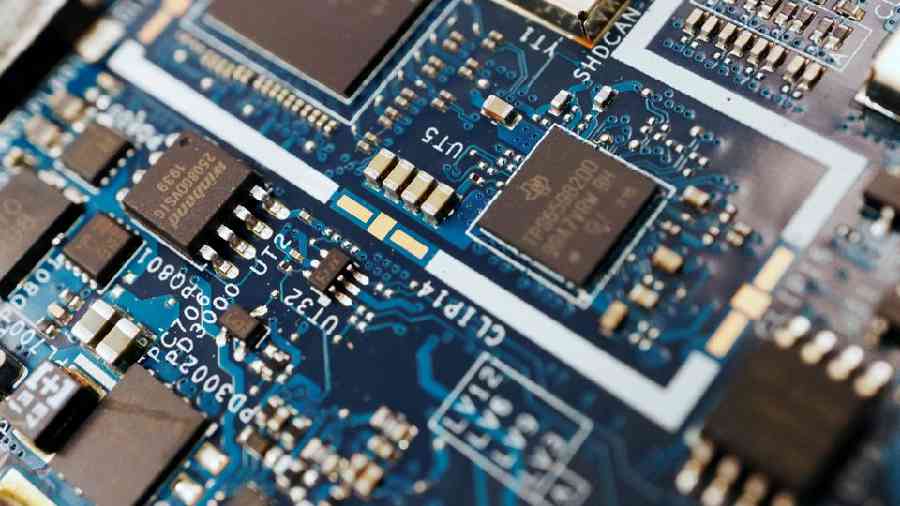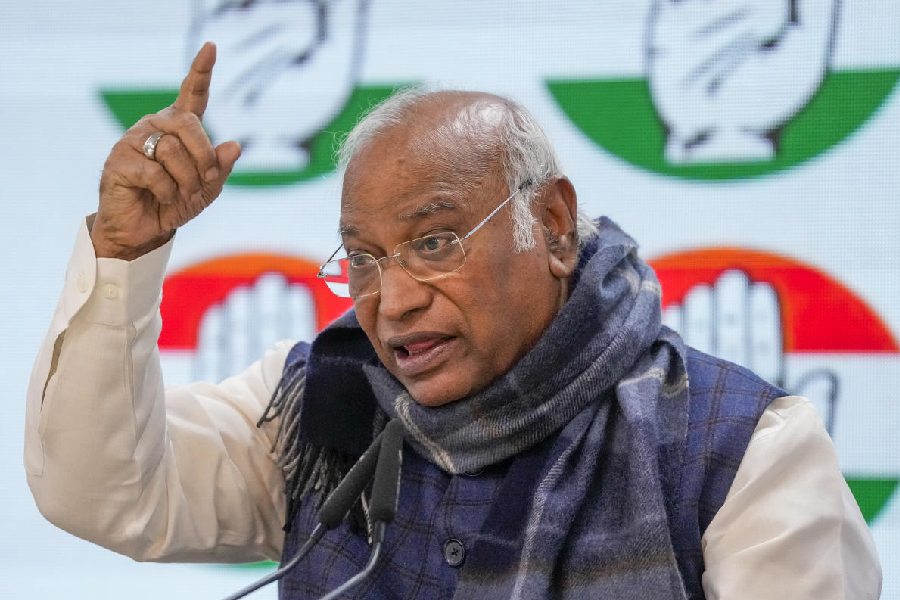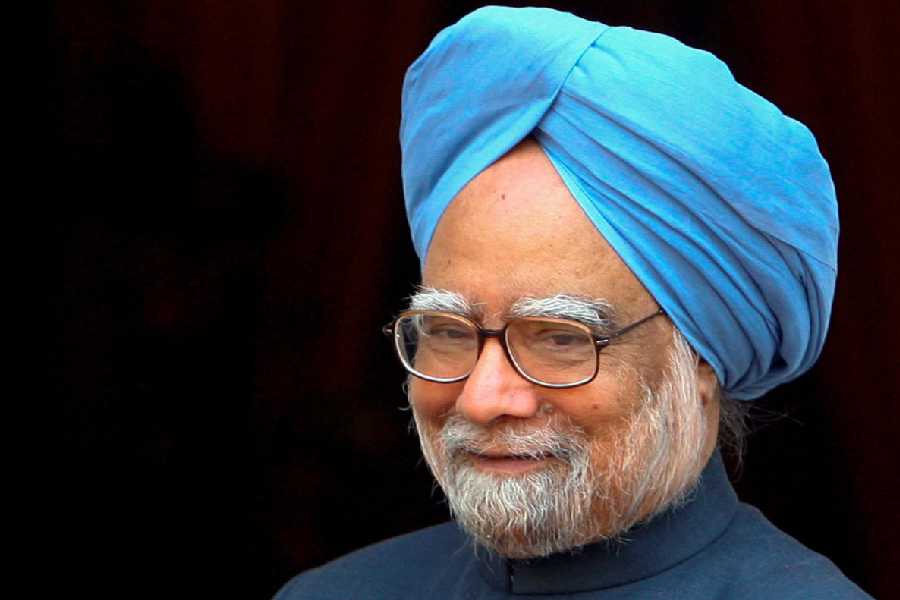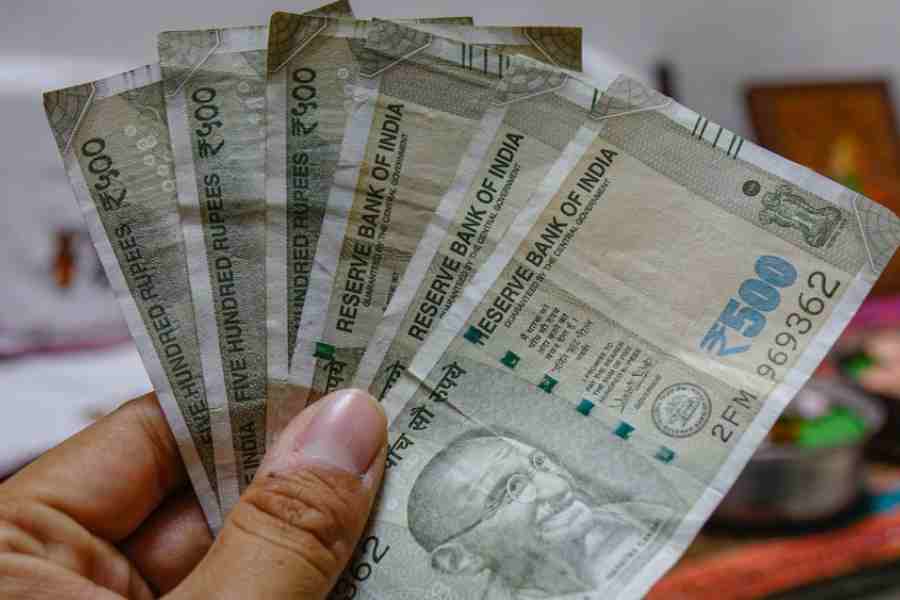As Chinese warships rehearsed a blockade of Taiwan this month, they simulated a scenario global leaders and policymakers have been busy worrying about: not war, but a grinding halt to the electronic supply chains that make the modern world run.
Taiwan’s biggest trading partners — which include China, the US, Europe and Japan — have different ideas about the self-ruled island’s political future, yet all share common ground in one desire, to expand their piece of its cutting-edge semiconductor industry.
Beginning with Speaker Nancy Pelosi’s visit in early August, a succession of American delegations have kissed the ring of top Taiwan chip executives.
There’s much to gain. In recent years, Taiwan’s biggest chip maker, Taiwan Semiconductor Manufacturing Company, or TSMC, has pledged to open new factories in the US and Japan.
The Taiwan chip design firm MediaTek recently partnered with Purdue University to open a chip design centre. The calculation begins from a basic, and unsettling, reality of the global economy.
Taiwan is the biggest producer of the world’s most advanced chips.
It is also rapidly becoming one of the world’s most dangerous geopolitical flashpoints.
The fear is that in the event of a conflict, firms won’t get the microchips they need to make phones and drones, set up supercomputers and cellular networks, and even build new weapons.
Tech companies on both sides of the Pacific now rely heavily on TSMC to craft the high-performance chips that render graphics in video games and give smartphones their smarts, but that also guide missiles and analyse oceans of military data.
That has turned TSMC, whose name is obscure to most consumers, into a vital strategic asset for both Washington and Beijing.
During the geopolitical drama of the past month, the power of and the rest of the island’s chip supply chain has been clear.
On Pelosi’s trip to Taiwan, she met with TSMC’s chief executive, Mark Liu, and its storied founder, 91-year-old Morris Chang.
A separate delegation led by Senator Edward J. Markey, Democrat of Massachusetts, met the company to discuss investments and improving semiconductor supply chains. Taiwan’s President, Tsai Ing-wen, told one group that she saw the island’s tech prowess as a means of shoring up support for its democracy.
Calling economic security a “pillar” of national security, she said Taiwan was willing to work with partners to build sustainable supply chains for what she called “democracy chips.”
Chinese state media sniped at the efforts, calling Pelosi’s meeting a “photo op.”
Still, as an indicator of how important Taiwan’s chips are, it did little to hit back at the company. For all of her feting of American delegations, Tsai, and the semiconductor industry she seeks to protect, face a precarious balancing act.
Many Taiwanese businesses — TSMC included — rely on China for their livelihoods, even if they support Tsai in standing up to Beijing’s pugilistic behaviour.
Though many in the semiconductor industry would look to the US for support in the event of a conflict with China, they baulk at the impracticality of building new factories in the United States, which is costlier and lacks supporting industries.
Chang, the TSMC founder, has repeatedly and publicly made the point.
TSMC, which declined to comment on its role in geopolitics, has manoeuvred in the narrow space between American and Chinese interests.
It is building new production facilities in Japan and in Arizona, even as it expanded the capacity of its factory in the eastern Chinese city of Nanjing.
But, critically, the vast majority of its most advanced production happens in Taiwan, where TSMC continues to build its leading-edge production facilities, called fabs. Seen one way, this web of dependencies helps keep the peace.
China’s reliance on TSMC and other Taiwanese chip companies deter the Communist Party from invading the island.
The US dependence on the same know-how gives its military support for Taiwan additional credibility.
In the event of a military conflagration, Taiwan’s importance to global chip supplies also means the damage to all sides — and to the wider world’s digital infrastructure — is hugely amplified.
Not for nothing do people in Taiwan call TSMC their “sacred mountain, protector of the nation.”
China’s new bellicosity, which crescendoed earlier this month with a week of missile tests and fighter incursions, has steadily pushed the island’s sympathies away from China.
“Right now, they’re moving very much towards the US,” Dieter Ernst, a senior fellow at the Center for International Governance Innovation who studies the semiconductor industry, said of Taiwan’s leaders.
“But from the perspective of the Taiwanese economy and most Taiwanese companies, they need to retain a link — and hopefully as close as possible a link — with China.”
Some top semiconductor leaders have spoken out against China after the military drills.
Robert Tsao, the founder of Taiwan’s second-largest chip manufacturer, United Microelectronics, said he would donate $100 million to Taiwan’s military following the exercises.
Long seen as friendly to China, Tsao said in an interview that things had changed. “They will bring no progress, only destruction,” he said of China’s Communist Party.
He also spoke out against the trend in recent years of Taiwanese semiconductor engineers going to work for Chinese companies for large salaries, saying they were “servicing the Chinese Communist Party.”
Yet few in Taiwan’s microchip industry believe Taiwan can walk away from China. The bulk of the electronics supply chain continues to runthrough China.
For years, the value of China’s imports of semiconductors has exceeded those of oil.
In 2021, it bought more than $430 billion in semiconductors, 36 per cent of which came from Taiwan, according to Chinese state media.
Much of it goes into devices made for foreign firms that are then exported to the world.
Despite China’s efforts to make more chips domestically — which have had some success, but have also recently been hit by a wave of executive arrests for corruption — Taiwan chip makers have taken pains not to become China’s “enemy,” said Ray Yang, consulting director at Taiwan’s government-funded Industrial Technology Research Institute.
New York Times News Service











